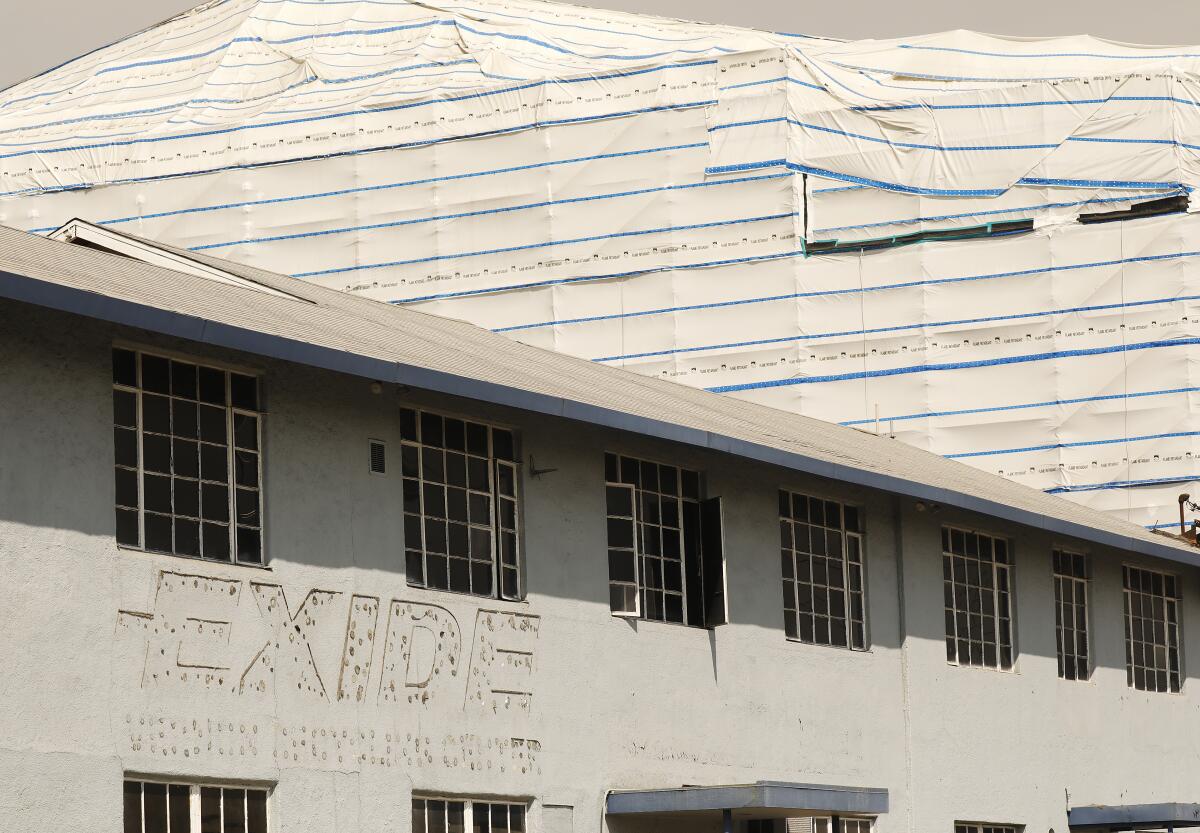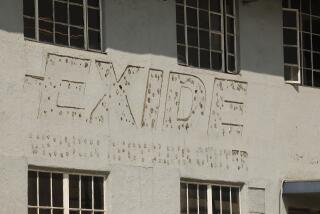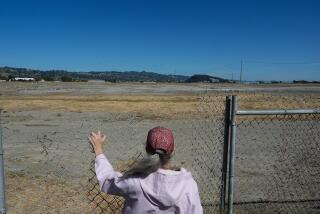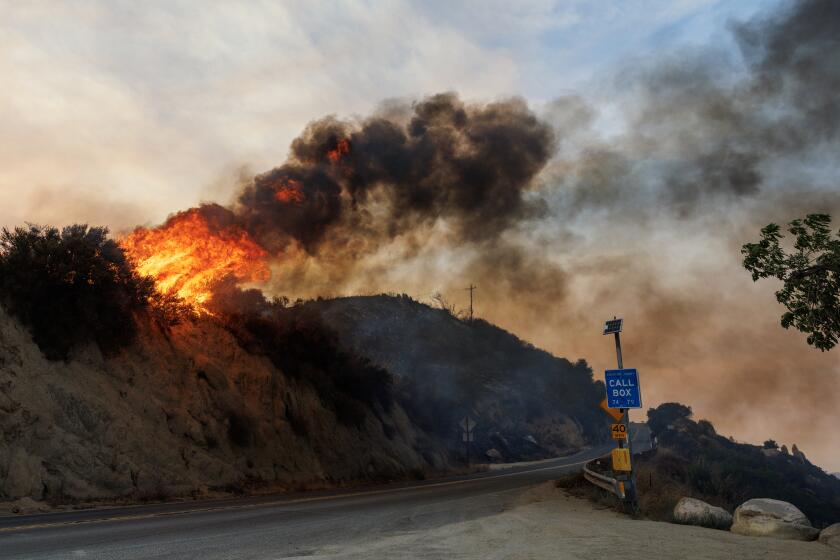At federal hearing, community outrage over plan to abandon Exide battery plant

Federal authorities faced an outpouring of community opposition at a public hearing Tuesday over an Exide Technologies bankruptcy plan to abandon a shuttered Vernon battery recycling plant blamed for spreading lead contamination across southeast L.A. County.
The near-universal indignation came from dozens of members of the predominantly Latino communities surrounding the closed Exide Technologies facility. One person after another during the hours-long hearing blasted the proposal and urged authorities to reject it and pursue actions to hold the company accountable for its pollution.
The U.S. Department of Justice and Environmental Protection Agency have agreed not to oppose the company’s plan, which is scheduled to be considered for approval at a bankruptcy court hearing Thursday.
“Accepting this terrible proposal would be letting Exide off the hook for poisoning our families with lead and other heavy metals,” said Mayor Elizabeth Alcantar of Cudahy. “The federal government should not be acting on the side of corporate polluters, and instead should be defending our residents.”
If it goes through, the proposal would leave taxpayers with the bill for California’s largest cleanup of lead-contaminated soil, which spans half a dozen communities and thousands of homes across an area of 100,000 people.
“We will be asked to live in our contaminated homes forever and to suffer for generations,” said Terry Gonzalez-Cano of Boyle Heights. “What gives you the right to let them walk away financially?”
The panel of Department of Justice and EPA officials, which held the hearing remotely by conference call, heard from residents of the cleanup zone whose family members died of cancer or whose children suffered lead poisoning or learning disabilities, as well as from environmental and health experts who called it an appalling environmental injustice.
“In my 30 years of cleaning up contaminated sites, I’ve never encountered a site that poses such a widespread and profound threat to human health,” said James Wells, an environmental geologist who has served as a technical advisor to the Exide Community Advisory Group. “And it’s really disheartening that any government agency would support abandoning the site.”
The lead-acid car battery recycling plant closed permanently in 2015 after Georgia-based Exide struck a deal with the U.S. Attorney’s Office for the Central District of California. The company admitted to years of environmental crimes but avoided prosecution by agreeing to close and demolish the plant and clean up the pollution.
Exide Chief Restructuring Officer Roy Messing declined to comment Tuesday.
The public hearing came a day after the state Department of Toxic Substances Control issued an order determining that conditions at the Vernon site may pose an “imminent and substantial endangerment to the public health or welfare or to the environment.”
In a statement, DTSC Director Meredith Williams called the action “a proactive step to ensure that we can protect these communities against further releases from this facility, should it be abandoned.”
California regulators let the facility operate without a full permit for more than three decades and did not require the company to set aside adequate funds to clean up its pollution, even as it repeatedly violated rules on hazardous waste and air pollution.
Exide filed for bankruptcy protection in May with plans to liquidate its assets across several states.
The Vernon facility is one of 17 Exide properties across 11 states at issue in the bankruptcy that either are not operating or are unprofitable, most of which “require future remediation to protect public health, safety, and the environment,” according to a fact sheet posted before Tuesday’s hearing by the Department of Justice.
The Justice Department document said that a key purpose of the plan is to“ reduce the risk of a chaotic and harmful abandonment,” and that if it is not approved, the risk of abandonment “is significantly increased and cleanup funding may be reduced or delayed.”
California has refused to sign on to the proposal and filed objections against it in court.
California has already set aside more than $270 million in public funds to clean lead contamination from the yards of thousands of homes stretching more than 1.7 miles from the facility. So far, state regulators have removed lead-laced soil from about 2,000 residential properties, as well as parks, day-care facilities and schools. But thousands more properties with lead levels above state health limits have yet to be cleaned.
The state toxics department said that no funds for residential cleanup would be diverted for the facility closure, and that it would continue that process using $26.4 million Exide was previously required to set aside to remediate the facility. Safely closing and cleaning the site is expected to exceed that amount, reaching $70 million to $100 million, according to state estimates.
More to Read
Sign up for Essential California
The most important California stories and recommendations in your inbox every morning.
You may occasionally receive promotional content from the Los Angeles Times.











